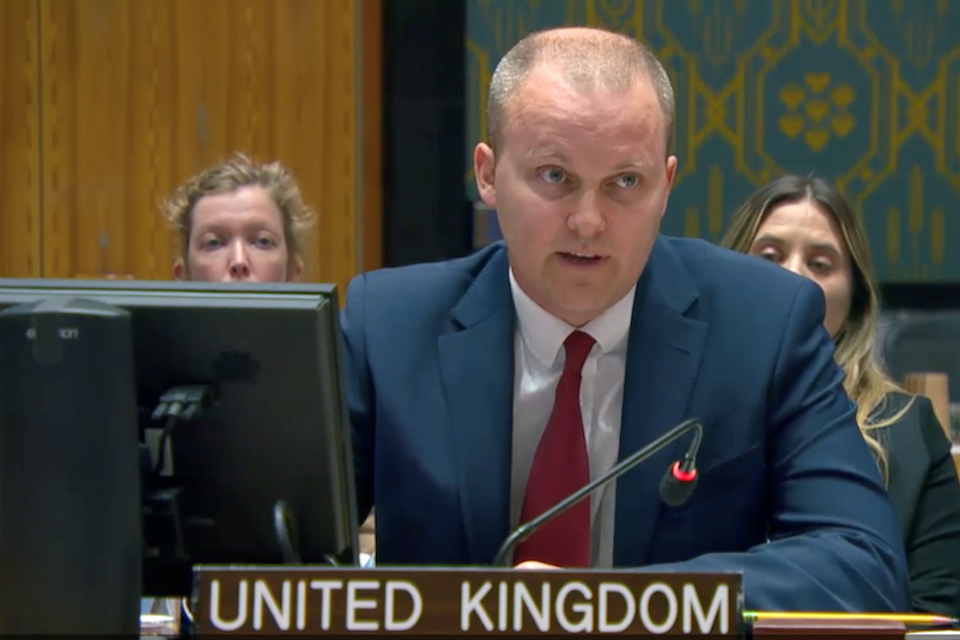We fully support efforts to promote reconciliation for the people of Bosnia and Herzegovina: UK statement at the UN Security Council
Statement by UK Political Coordinator Fergus Eckersley at the UN Security Council meeting on Bosnia and Herzegovina.

Thank you, President.
Thank you to High Representative Schmidt and the Assistant Secretary-General for their briefings. We also took careful note of the briefing in her personal capacity by Ms Cvijanovic and we welcome the representatives of Bosnia and Herzegovina, Croatia and Serbia to the chamber.
Madam President, allow me to make two points.
First, with this Council set to discuss Bosnia and Herzegovina in two weeks, we do not believe that the current situation warrants urgent discussion. Despite current tensions, the overall situation remains stable and we welcome that.
The European Council’s decision in March to grant Bosnia and Herzegovina EU accession status is an important step, including given the wider geopolitical situation, and reflects the importance of the government’s action to strengthen democracy, human rights and the rule of law.
We encourage the Bosnia and Herzegovina authorities to work together on the necessary steps to enable the negotiating framework to be adopted.
At the same time, we call on the leaders of Republika Srpska to cease their secessionist rhetoric and actions, which threaten this progress. These provocative actions are increasing tensions between communities, undermining state institutions and run counter to the Dayton Peace Agreement.
The High Representative is mandated by the Dayton Peace Agreement to oversee the implementation of the civilian aspects of the agreement. We fully support his efforts to address these challenges and promote peace and stability in Bosnia and Herzegovina.
Second, we are deeply concerned about the rise in genocide denial and the glorification of war criminals. True reconciliation cannot be built upon a reluctance to accept and come to terms with the actions of the past.
What happened in Srebrenica was one of the worst crimes in Europe since the Second World War. The International Criminal Tribunal for the former Yugoslavia Appeals Chamber unanimously found in its judgment of April 2004 that genocide was committed in Srebrenica. That is not a political statement. It is the judgment of an international court. And to say so is not a criticism of Serbia.
Judges at international courts have been clear that this is not collective judgement upon the Serbian people, as some have alleged today. As one Presiding Judge at the International Criminal Tribunal stated: “I seek to judge an accused. I do not judge a people…”. We fully support all efforts to promote reconciliation for all the people of Bosnia and Herzegovina, and to learn the lessons of history to ensure this terrible event is never repeated.
Madam President, let me finish by congratulating you on a very successful presidency for the month of April and by offering Mozambique our full support for the month of May.
I thank you.